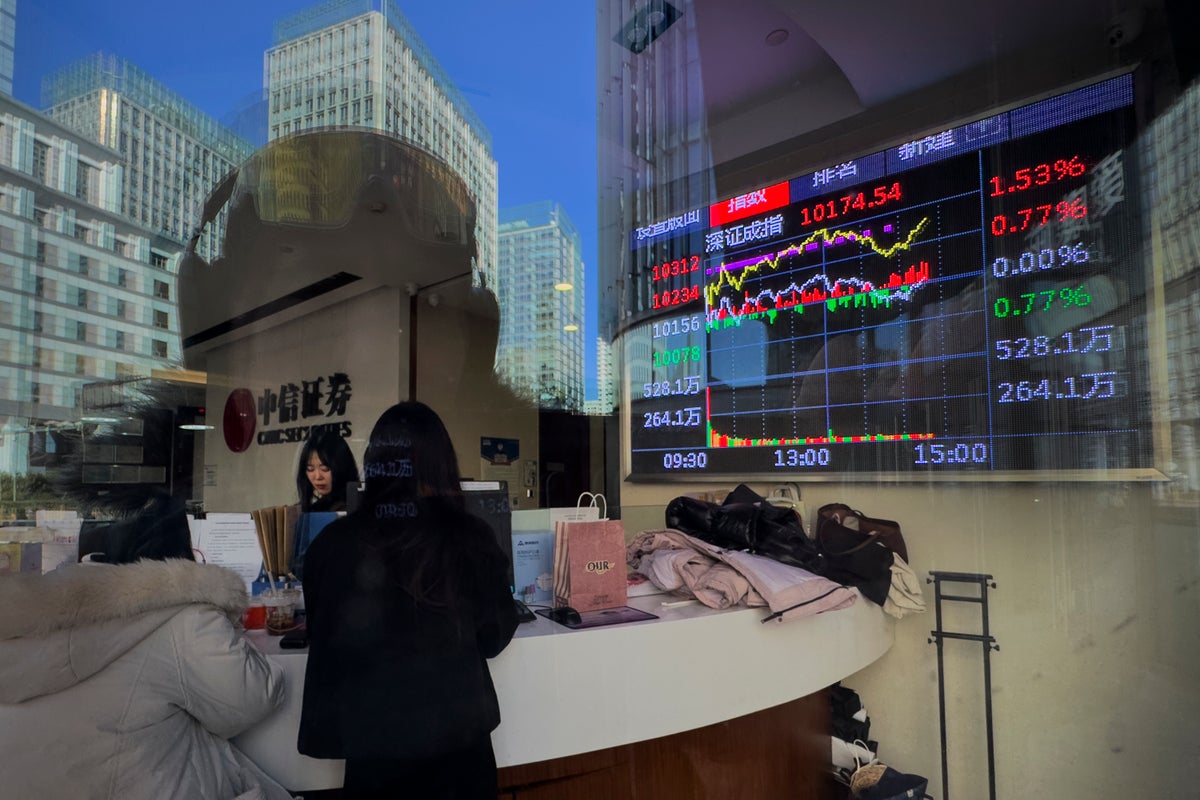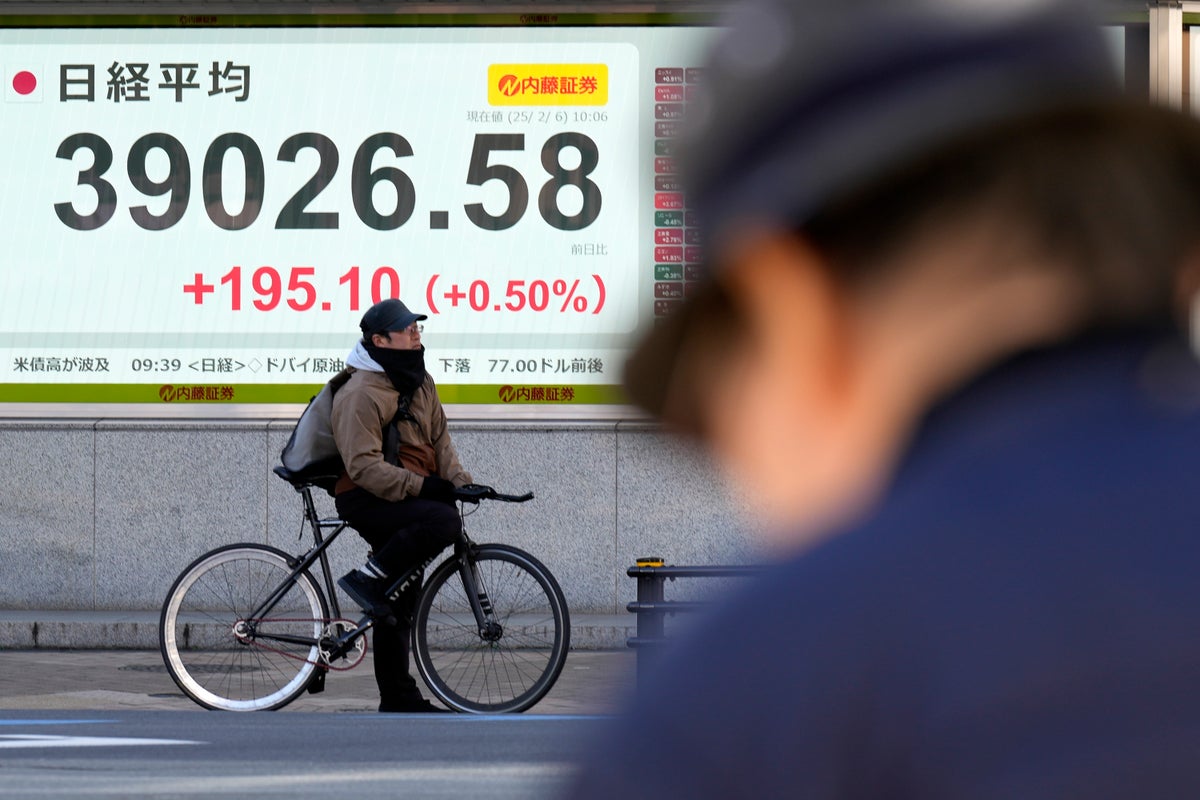Global shares presented a mixed bag on Thursday, with stocks in France and Germany making gains while those in Britain took a hit. Asian markets also closed lower as concerns over US President Donald Trump's tariff policies continue to unsettle global investors. Early trading saw France's CAC 40 rise by 0.4% to 8,142.89, while Germany's DAX increased by 0.3% to 22,507.07. In contrast, Britain's FTSE 100 dipped by 0.3% to 8,684.84.
Predictions for US shares were also mixed, with Dow futures up nearly 0.2% at 44,627.59, while the S&P 500 futures fell 0.2% to 6,148.00. Asian markets broadly experienced declines. Japan's benchmark Nikkei 225 dropped 1.2% to close at 38,678.04. Australia's S&P/ASX 200 declined 1.2% to 8,322.80, while South Korea's Kospi lost nearly 0.7% to 2,654.06. Hong Kong's Hang Seng dipped 1.6% to 22,576.98, following China's decision to keep its benchmark interest rate unchanged in a bid to maintain financial stability. The Shanghai Composite shed less than 0.1% to 3,350.78.
"The yuan has been under siege, with foreign-exchange outflows surging last month as Trump's tariff rhetoric sent shockwaves through markets," commented Stephen Innes, managing partner at SPI Asset Management. Energy trading in Asia on Thursday saw benchmark U.S. crude fall 31 cents to $71.94 a barrel, while Brent crude, the international standard, lost 21 cent to $75.83 a barrel.
Analysts are keeping a close eye on recent currency shifts, as the yen gains ground against the US dollar, even dipping below 150 yen at one stage. The Federal Reserve has hinted that it might hold off on rate cuts for the time being. During Thursday's trading session in Asia, the U.S. dollar fell to 150.35 Japanese yen from 151.37 yen. Meanwhile, the euro rose slightly to $1.0436, up from $1.0428.































